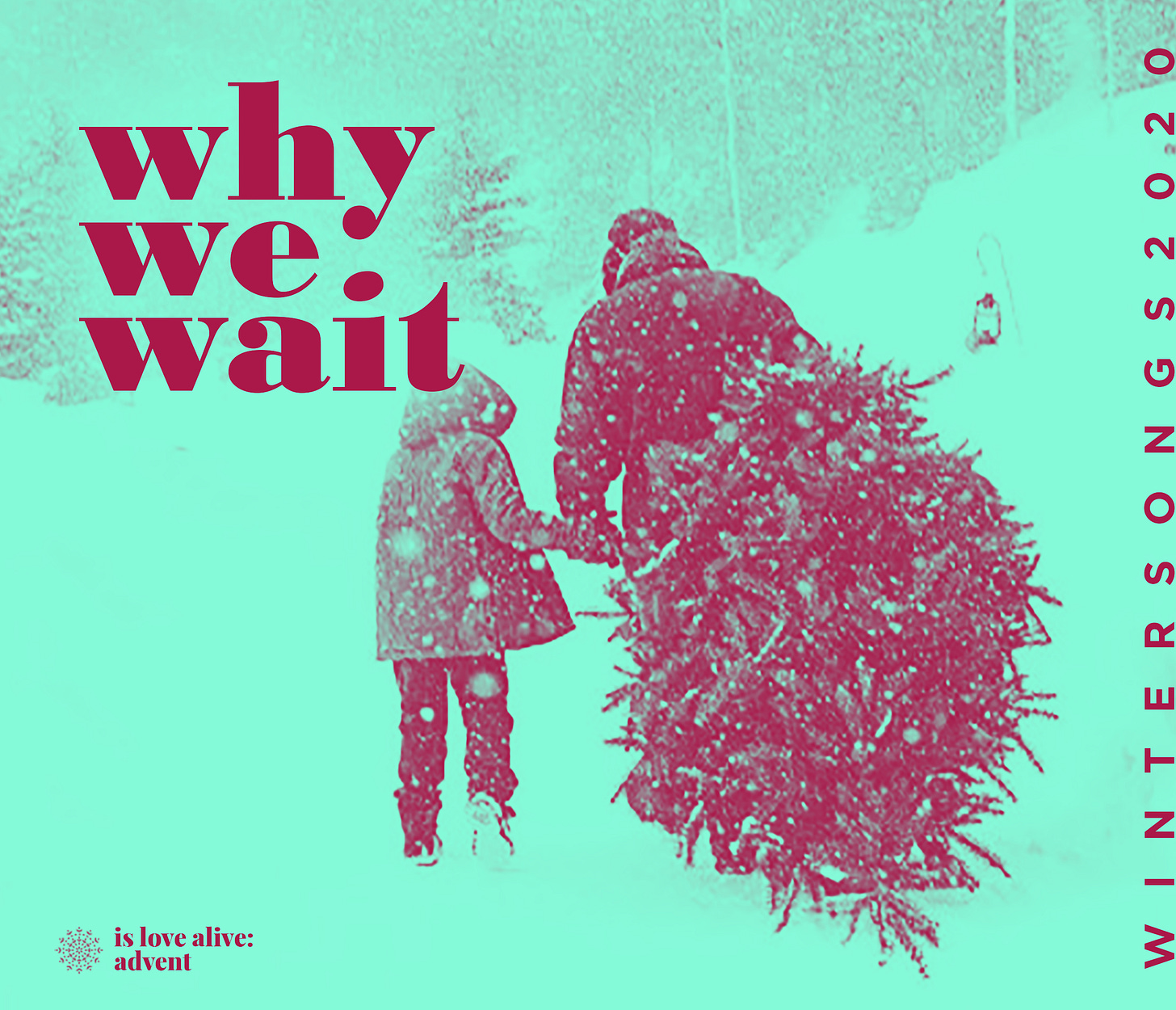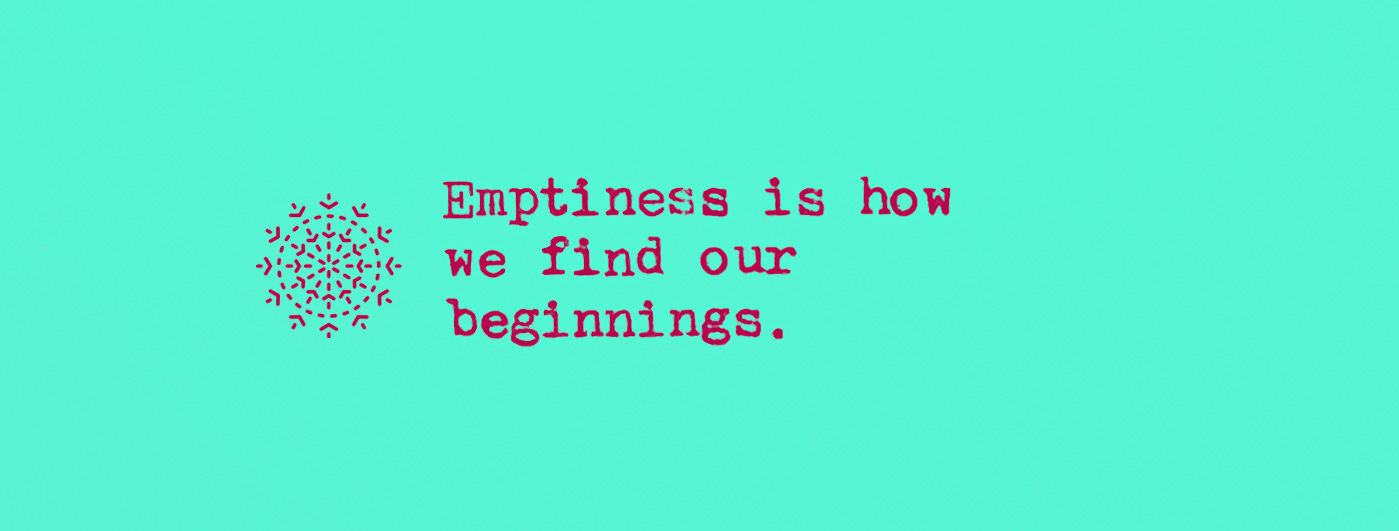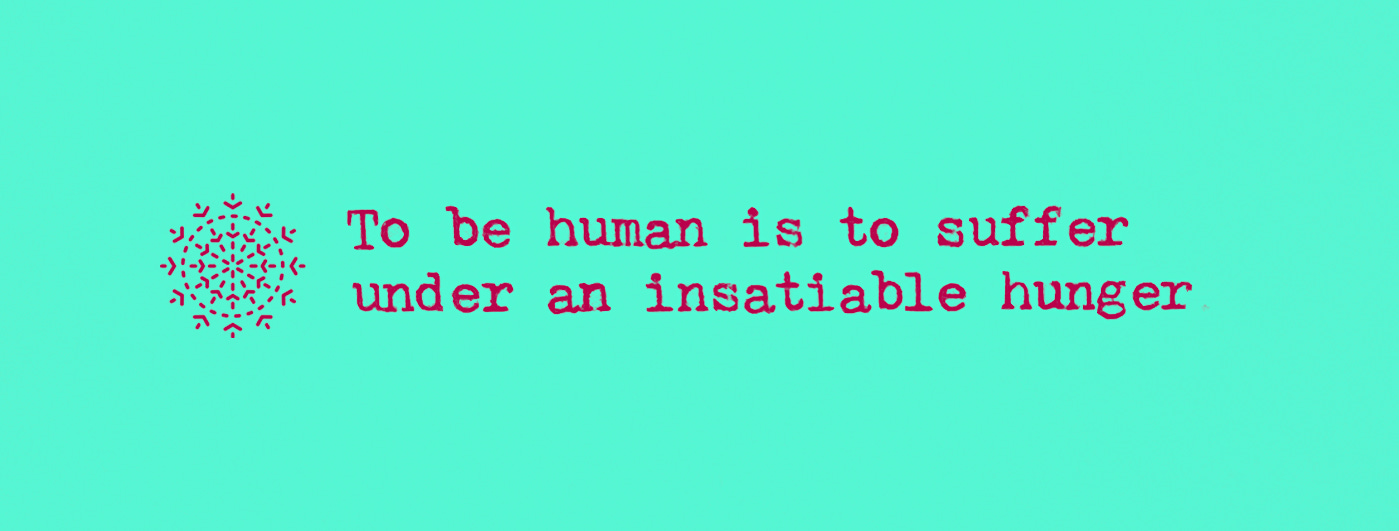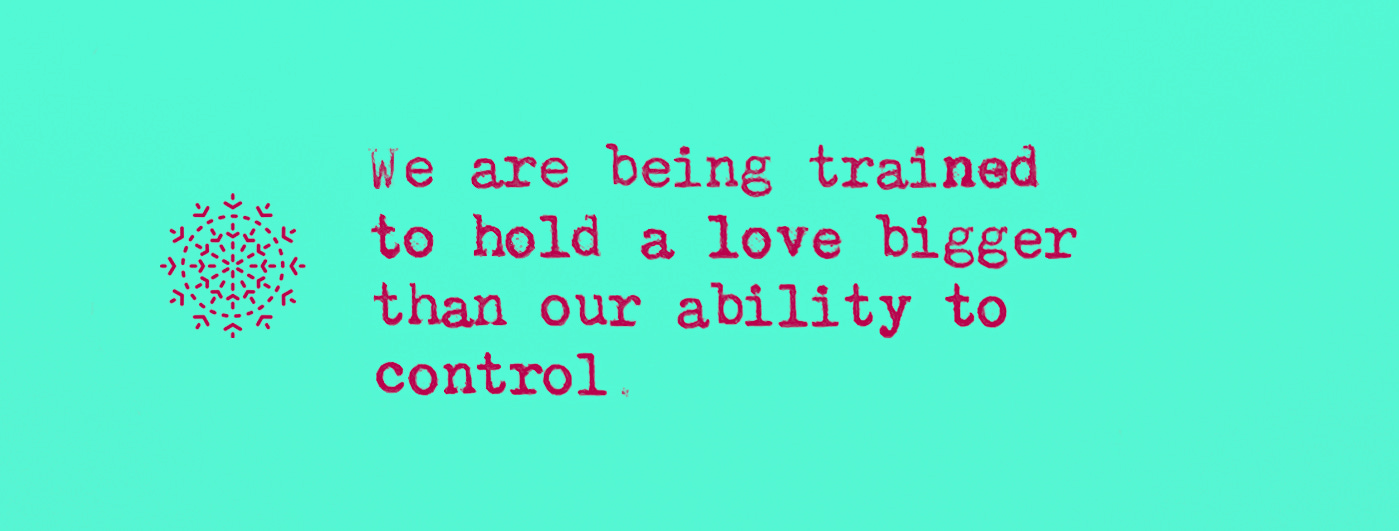Why We Wait: Advent #1
The glamour of 2020 has been the self-improvement we were all supposed to be doing. Instead, we've mostly been waiting. Here's why that's a good thing.
I read enough of high-church Twitter to know how I’m supposed to feel about Advent. If the podcasts and the thought leaders are onto something, then I’m supposed to be ready to wait. Most years concentrating December on waiting feels countercultural (or crazy), and 2020 is like most years, only moreso.
A year when waiting—waiting for vaccines, for school to be in session, for the house to empty out, for something to look forward to, for election day—when all the waiting is like the lukewarm soup that we live in, never boiling, never steeping the kind of flavor that’s supposed to seep into our souls. Never chilled, always festering the threat of soured infectibility.
Is Love Alive?
This is my winter song
December never felt so wrong
You’re not where you belong
Inside my arms…
Is love alive?
- Sara Bareilles / Ingrid Michaelson, “Winter Song”
There are a few things we know, as this shit storm of a year comes to a near close. We know that the capacity for human wickedness is deeper than our modern sensibilities might have considered. We know it as relationships break against the strain. As religious leaders are washed under the sea of their hypocrisy, and as once reasonable people tout the death of a quarter of a million people—many, but not all of them, elderly—as the necessary consequence of our individual freedoms.
We also know that we are more flexible than we dared imagine. More able to face an endless drumbeat of unknowns.
2020 has felt like a winter song from beginning to end. A journey through ten plagues, not just one. To be human is to suffer under more questions than answers. To be human in a pandemic as our social fabrics fray is to feel those questions like an endless frost on uncovered skin.
Is love alive?
We do ourselves no favors to enter into this Advent pretending things have been better than they have. The optimism police, badges polished by their well-fashioned “fear over faith”, will require us to submerge any dark feelings into a sea of self-denial. They are experts at it. It’s the way you get a platform, a book deal, and a seat in the executive suite. Hiding our sorrows behind the mask of #blessed is so readily affirmed it feels like truth, instead of the self-deception it can often be.
If Advent is anything, it is permission. Permission, to weep, to cry out, to feel the empty arms that were once full. Whether your arms are empty because of death, distance, or because you no longer have the courage to wrap them around an unkind world… it matters little. What matters is that emptiness is how we find our beginnings rather than reliving our endings, over and over and over again.
The liturgy teaches us that with Advent a Christian New Year begins not in the celebration of possibility, but in the hollow emptiness of silence. What the first Christians noted as the 400 years of silence between Malachi’s prophecy and Mary’s pregnancy. The heavens have turned to glass. And the prayers that go up only come down a hollow echo of themselves.
This is the silence in which Christmas is born. You’ll find it often begins with a scream into a pillow. A sob of unmet wants. The flutter of raw nerves from a world bent on feeding our anxieties. Advents business is extending the deadlines on joy’s return.
How Have You Loved Us?
“I have loved you,” declares the Lord.
But you ask, “How have you loved us?” - Malachi 1:1
Christianity, the business of following Jesus, is a fool’s religion. No one who wanted a reliably good life would follow it. It promises no quick fixes, no quid pro quos, no quantifiable prosperity. Peace and joy will never be traded on the NASDAQ.
For those of us caught up in Christianity’s sway, we re-enter every time from the hollow of our own dark places. With the emptiness of our misplaced hopes, the canyons of our echoing 2020s. Years so cavernous they cannot be stuffed with platitudes or optimism.
When the losses have piled up and the excuses have run out we are ready for Christianity. We are ready for the fool’s faith. Not because God needs us empty in order to fill us (the old preacher’s tropes run tired still). Rather, because empty is what we already are, beneath the bona fides and resumes. To be human is to suffer under an insatiable hunger.
Without the emptiness, the hollow of advent, the waiting of 2020, we fail to recognize how hungry we’ve always been. We believe that Big Macs are food. That Facebook is a family. That the conspiracies are the stories worth telling.
How has He loved us? By reacquainting us with the deep hunger. The hunger for love. For connection. For wonder. For the inexplicable. He has loved us by returning us to the cycle of things, retraining us to value the empty seasons.
He has loved us by showing us that world’s deepest magic is happening in the frozen soil.
Why We Wait
They say that things just cannot grow
Beneath the winter snow,
Or so I have been told.
They say we’re buried far,
Just like a distant star
I simply cannot hold.
Is love alive?
I invite you to finish the waiting. Not the waiting that ends on Christmas Eve with a new wagon or BB gun, but the waiting that ends with a birth. I’ve—spoiler alert—never been pregnant, but I have lived in the same house as three pregnancies, and here’s what I know. They require every ounce of energy. They upend your sense of normal and everything about your life is forever changed. Your muscles, your nerve endings, your hopes, and your hunger. A pregnancy makes a baby, but it also makes a mother.
My life has been formed by female elders. People who either by biology or by spirit birthed many into the world. And this is what they’ve taught me: The waiting is making something in you. It is forming your hunger for a better kind of life. It is moving around your cellular tissue, preparing you for the rest of your life:
Where you love something you cannot control. Where the circle of your love extends past the tendrils of your strength.
We are being trained to hold a love bigger than ability to control, and waiting is our personal trainer. Waiting is the essential ingredient in hope. To face the future without it to live on a bread without yeast. Hope without waiting is merely “optimism,” the chemical opiate that has taken its place in the modern mind.
Waiting is how sorrow becomes a seed.
I still believe in summer days.
The seasons always change
And life will find a way.
I'll be your harvester of light
And send it out tonight
So we can start again.
Is love alive?
Reflection: What are you most waiting for? How could that waiting be birthing something new in you?
Beauty: Winter Song as recorded by Jewelle Blackman, Yvette Gonzalez-Nacer, Kay Trinidad and the Hadestown Original Cast
This post is just one of a series on 2020, what we’ve lost, and how the solace of advent may help us answer the question, “Is Love Alive?” Thanks for subscribing and sharing.






